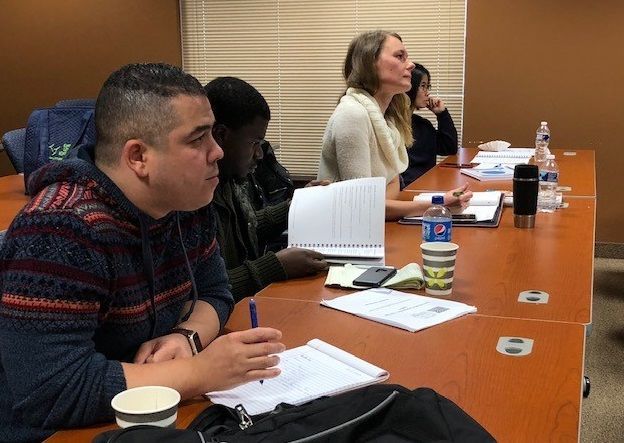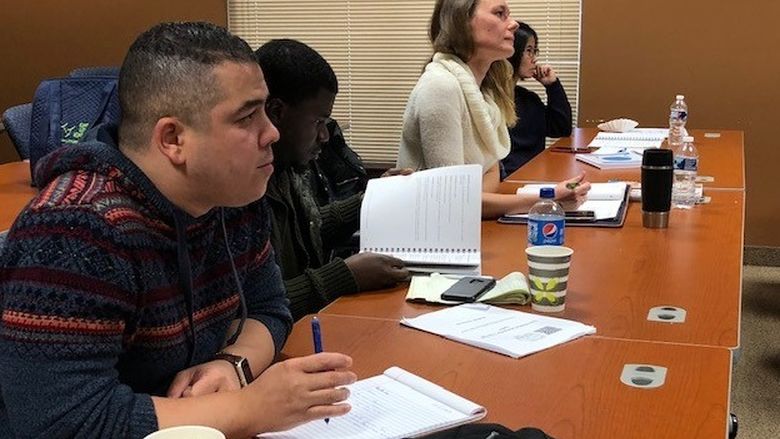
Enmanuel Sotomayor (forefront) is one of the CMIT program students. Sotomayor is a physician from Cuba who moved to Harrisburg, Pennsylvania four years ago.
Penn State Lehigh Valley will offer the Core Medical Interpreter Training Program (CMIT) for people interested in meeting the requirements for national certification for medical/healthcare interpreters.
The hybrid program will start on March 20. It includes an online component and five in-person training days this spring, which will be held from 8 a.m. to 4:30 p.m. at Penn State Lehigh Valley’s Overlook Park location in Allentown. It totals 80 hours, split evenly between online and classroom time.
CMIT is offered to bilingual or multilingual individuals, who are either currently working in health care or are interested in obtaining an entry-level credential in the field. The program covers all of the basic aspects of interpreting in health care including the roles, modes, ethics and current professional and regulatory guidelines, strategies for effective communication between different cultures in the health care setting, medical terminology, anatomy and physiology, as well as eight hours on the Codes of Ethics and intensive role-playing to gain new skills and significantly improve patient safety.
The goal of CMIT is to promote National Best Practice Standards in Professional Medical Interpreting for all limited-English proficient (LEP) patients requiring assistance.
During this program, interpreters will be empowered to become essential members of the health care team, always show professionalism and respect, ensure accurate understanding between patients and providers and make appropriate decisions under difficult circumstances based on the Code of Ethics.
Enmanuel Sotomayor is a recent CMIT program student. Sotomayor is a physician from Cuba who moved to Harrisburg, Pennsylvania, four years ago. Once he becomes a nationally certified interpreter, he said he plans to take his boards and apply for residency to become a medical doctor in the U.S.
“I joined the program to improve my medical English proficiency and to give back to what was given to me. I used a medical interpreter when I first got here,” Sotomayor said. “There are great needs for medical interpreters, especially in inner city. This national certification will also be a plus when I am in my medical residency here.”
Sotomayor said he was impressed with the CMIT program and its quality.
“I didn’t realize how complex it was to be an interpreter. You act as a conduit and must use the same emotion and context. You also need to understand the slang used in both languages, the cultural understanding and the sayings. I have learned a lot,” Sotomayor said.
For more information, including schedule details, cost and scholarship opportunities, visit the CMIT website or contact Cindy Evans at [email protected] or 610-285-5133.
Dennille Schuler
Public Relations Specialist
Penn State Lehigh Valley
